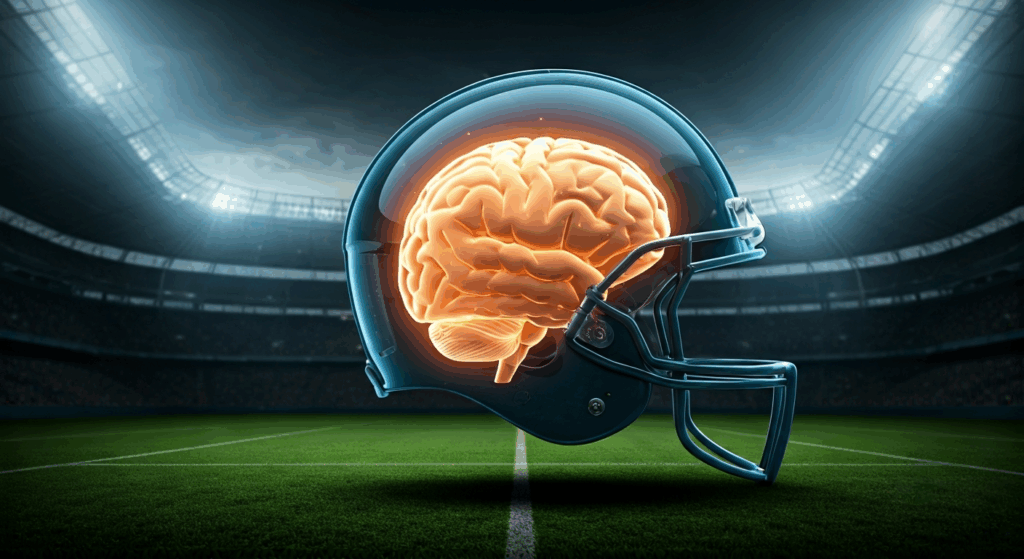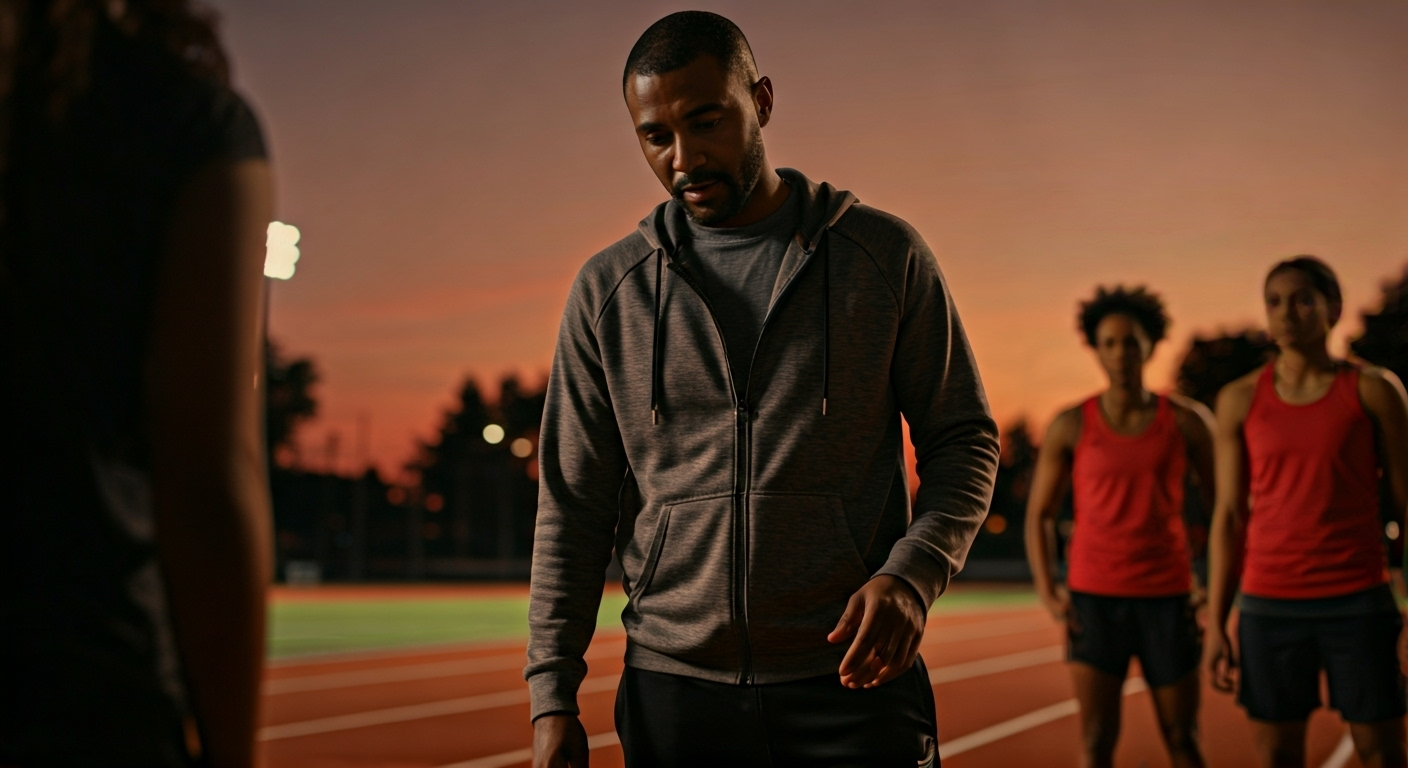Mental Health on Athletes: Why It Matters in Sports

Key Highlights
- Mental health is equally critical as physical health for athletes at all levels.
- Athletes face mental health challenges such as anxiety, depressive symptoms, and substance abuse, affecting overall well-being.
- Stress from performance pressure and injury recovery raises the chances of mental illness for student athletes and elite competitors.
- Cultural attitudes, stigma, and limited access to resources hinder effective mental health care in sports organisations.
- Supportive environments and mental health literacy promote positive mental wellness and better athletic performance.
- Emerging studies emphasize the growing importance of mental health at every level of competition in sports.
Introduction
Athlete mental health is now seen as an important topic in the world of sports. Good mental health helps you keep up with peak performance. It also makes sure that you have long-term success. Whether you are a pro player or a student athlete, your mental wellness matters. It has an effect on how you train, how you play, and how you come back after tough times. So, why is mental health so important in sports? In this blog, we will talk about why athlete mental health should come first, what mental health challenges athletes face, and ways to deal with mental health problems in sports.
Understanding Mental Health in the Context of Sports

Athletes deal with many things, like being under a lot of pressure to win and feeling sad or upset when hurt. It is common for them to face worry, feel alone, and show depressive symptoms. That is why people need to care for mental health just as much as physical health. When we do this, we can help make better support systems for them.
Defining Mental Health for Athletes
Mental health for athletes is about how they handle stress, deal with psychological factors, and keep their mood steady in their daily life and during competition. This includes being able to bounce back from tough times, stay on track with goals, and deal with things when they do not go as planned. Athlete mental health and mental wellness can depend a lot on the support staff, mental training, and access to the right health care.
For example, using mindfulness can help athletes sharpen focus and stay calm, even with a lot of training stress. Many athletes train hard to perform their best, sometimes pushing through tough emotions or mental health concerns. But that should not take away from the need to care for their mental wellness.
Support staff like coaches and sports psychologists have a big part in helping with athlete mental health concerns. They help make a place where athletes feel safe to talk about problems and get help when they need it. This teamwork is important for building long-lasting mental health. As athletes meet big demands, keeping an eye on their psychological factors is key to reaching peak performance and living a better, healthier life.
Historical Perspective on Mental Health in Sports
For many years, people in sports did not take mental health seriously. The idea was that caring about your mind showed weakness, not strength. Many cultures made people stick to this thought. Because of this, sports organisations pushed athletes to hide how they felt and only focused on physical training.
In the past, sports organisations did not think mental health was important. They gave little priority to mental health awareness. Athletes often faced harmful pressure and had almost no ways to get mental health help. For a long time, there were not many real plans to handle mental illness in sports.
Slowly, more mental health awareness has helped change how people think about feeling vulnerable in sports. Now, many see that mental health is a key part of good athletic performance. This has led to real improvements in mental health resources and support systems. Today, sports organisations are making strong efforts to give mental health help, offer more information, and let athletes know that ignoring mental well-being can be dangerous. This change in history shows why it is important to use good plans that will protect athlete mental health.
Prevalence of Mental Health Issues Among Athletes

Student athletes have their own mental health challenges. They try to balance hard school work and sports at the same time. On the other hand, people who are in professional sports have to handle stress before big games and also deal with the public watching them. There is now a need to focus on how often mental health issues show up in sports. Taking care of mental health in all kinds of athletes has to be important for the whole community.
Common Disorders Affecting Athletes
Mental health can affect all athletes. It often shows up in ways that hurt both their sports performance and daily life. Here are some of the most common mental health concerns for athletes:
- Symptoms of Anxiety: Feeling extreme fear of failure while playing or practicing.
- Depressive Symptoms: Losing motivation, pulling away from others, and feeling sad all the time.
- Substance Abuse: Using drugs or drinking alcohol to handle the stress that comes with sports or to feel less pressure.
- Body Dysmorphia: Worrying too much about how they look, especially in sports where appearance matters, like gymnastics.
- Disordered Eating: Eating habits changing because of stress or the need to look a certain way for their sport.
Athlete mental health is often overlooked. Many try to hide or say they do not have these problems, which can make things worse. Support staff like coaches and psychologists have to spot these issues and offer help. Tackling these mental health concerns early gives athletes a better chance to get proper care and get back to feeling good.
Trends Across Different Levels of Competition
Mental health challenges can show up in different ways based on how high the level of competition is. This means the way we care for each group of athlete has to be made to fit them. Here is a table that breaks it down:
| Competition Level | Common Issue | Key Focus for Support |
|---|---|---|
| High School Students | Balancing sports with academics, anxiety | Building resilience and mental wellness |
| Collegiate Athletes | Performance pressure, substance use | Encouraging mental health literacy |
| Professional Athletes | Fear of failure, public scrutiny | Providing access to mental health resources |
| Olympic Athletes | High stakes, loss of identity | Addressing mental health through support staff |
For high school students, it can be hard to balance the stress from sports with school work. They also may deal with anxiety. The big thing here is to teach them about being strong when it gets tough and to talk about mental wellness.
Collegiate athletes may face a lot of pressure to perform and some may deal with substance use. It is very good to help them know more about mental health and to teach them ways to take care of themselves.
Professional athletes can feel fear of failure and may worry about what people say about them in the public eye. They need easy access to mental health resources that
Key Factors Influencing Athlete Mental Health
Athlete mental health is shaped by the things people feel and the many risk factors that can come from inside and outside pressure. This can be things like hard competition schedules, what they want for themselves, and all the travel they have to do.
If there are no good ways to deal with stress, athletes can get burnout, depressive symptoms, and start to feel anxious about how they play. When people have a good understanding of these things, sports groups can do more to help with mental health care. This helps athletes do well in their sport and feel better in life every day. When mental and emotional health is strong, athletic performance gets better as well.
Performance Pressure and Expectations
Performance pressure is one of the big things that often lead to mental health struggles for athletes. The high expectations from coaches, fans, and the goals they set for themselves can make them afraid to fail. Many competitors feel difficult emotions that stop them from doing their best. These feelings also get in the way of their mental wellness.
Some elite athletes, like Naomi Osaka, have taken a break from their sport to look after their mental health. Osaka’s choice shows how too much pressure can make athletes burn out or even lose all interest in taking part in the sport.
To help with this kind of stress, athletes need to have ways to deal with what is expected of them. They should find ways to handle emotions well. There should be help from mental health professionals, coaches, and team members. It’s important for everyone to know that mental wellness matters more than being perfect. Looking after your mind is what makes long-term athletic performance possible.
Injury and Recovery Challenges
Physical injuries can have a big impact on mental health. Many injured athletes deal with depressive symptoms and lose their sense of who they are as athletes. There is also a lot of anxiety. Michael Phelps’ story shows that mental health symptoms can stay strong during the struggle to get better after an injury.
There are many things that make recovering even harder for athletes. These might be feeling alone in rehab, being scared of getting hurt again, and missing the daily life routines they used to have. All these can make mental health concerns worse and it can take even more time for athletes to heal.
Support from coaches, psychologists, and the people on recovery teams helps athletes get back both their physical health and mental health at the same time. When athletes are given the right help for mental health during the healing process, it can make them stronger and ready to go back to their sport.
Social and Environmental Stressors
Athletes face many social and environmental stressors that make mental health concerns worse. There are high expectations from coaches, teammates, and fans. This creates a lot of pressure. It can cause anxiety and fear of failure to go up. Social media also plays a big part in this. It can make social isolation feel stronger and make the public see them in a negative way. These things put athletes at a higher risk for mental health conditions. This is why it is so important to have the right mental health resources and support systems in athletic programs.
Team Dynamics and Coaching Styles
A good team dynamic has a big effect on the mental health of athletes. Coaches who are supportive and understanding build trust with players. This can help lower mental health concerns such as anxiety and depression. On the other hand, if a coach is very strict, this can make players feel social isolation and fear of failure. That is not good for their overall wellness. Keeping open communication and working together helps improve athletic performance. It also helps athletes have positive mental health. These ways of working together help take care of mental health conditions that many face because of competition at all levels.
Media, Public Image, and Social Media Impact
The way media and social media watch athletes has a big effect on their mental health. The focus on public image puts a lot of pressure on them. This can cause anxiety and depressive symptoms, especially for elite and collegiate athletes. When athletes think they have failed, or when people talk about them in a bad way, it can leave them feeling left out or in social isolation. Social media also increases the chances of substance use and other poor mental health conditions. Because of this, it is important to build mental health awareness for everyone. If we know about these psychological factors, we can help create places where athletes’ mental wellness is put first.
Physical and Mental Health Connection

How Physical Injuries Affect Mental Well-being
Sustaining a physical injury can lead to many mental health challenges for athletes. It can make people feel alone or cause them to lose their sense of identity. Many injured athletes deal with depressive symptoms and anxiety. This can get worse because there is always pressure to keep up peak performance, even when physical health is not at its best. The connection between physical injury and mental wellness shows that it is very important to add mental health support to recovery plans. If sports organizations care about both physical health and mental health, they can help athletes recover better. This kind of help can make healing easier and give athletes a more complete, caring way to get back on track.
The Cycle Between Performance and Mental Health
Performance and mental health go hand in hand. The two affect each other in many ways. Good athletic performance can boost your mental wellness. It helps you feel proud and happy about what you do. On the other hand, poor mental health can make you feel anxious and sad. This can lower your athletic performance. This cycle is hard for elite athletes. The high pressure to always do well can make mental health conditions even worse. Knowing how the two are linked is key. This helps keep both your athletic performance and your overall well-being at a good level.
Barriers to Addressing Mental Health in Athletes
There are many things that get in the way when athletes try to deal with mental health. Stigma is one of the main problems. Because of this, many athletes feel shame about their mental health and do not want to reach out for help. In sports, people often say that mental health problems are a sign of weakness. This makes some athletes feel even more alone. Access to mental health resources is also important, but many athletes do not have the right help and support from sports medicine professionals. All these things can hurt the well-being of athletes. This shows that now is the time for a big change in how we support mental health, sports medicine, and get people the help they need.
Stigma and Cultural Attitudes in Sports
There are big challenges in talking about mental health in sports. The main problem comes from stigma and old ways of thinking in these groups. Many athletes do not want to look weak, so they often avoid talking about their own mental health. In the world of sports, people are taught to be tough. Because of this, there is a belief that showing emotion or weakness is a bad thing. This makes elite athletes, including those at college and professional levels, deal with mental health challenges on their own. Changing these ways of thinking is very important. It will help create a place where mental wellness matters as much as athletic performance. This will make things better for the athletes, both in sports and in their lives outside the game.
Access to Mental Health Resources
Barriers can stop young athletes from getting mental health support. Many of them do not want to get help because they worry they will look weak or that people in their sport will judge them. There is often a culture in sports that focuses so much on performance. This can make some athletes feel alone and lead to more mental health challenges.
It is important for sports organizations to bring mental health professionals into their teams and training groups. When support from mental health care experts is easy to get, young athletes will feel more able to take care of their mental health. By talking more about mental health resources and telling people what options there are, athletes can learn to look after their well-being. This will help them grow, do better in their sport, and handle tough times with a healthier mindset.
Recognizing Signs of Mental Health Struggles
Being aware of mental health struggles in athletes is very important for giving the right help. Some common warning signs are when an athlete pulls away from teammates, does not feel motivated, or gets more irritable. Finding these signs early can make a big difference for an athlete’s mental wellness. It also matters to know about risk factors like social isolation or pressure to perform, so support staff can give the help each person needs. Talking openly about emotional well-being is important to create a space where athletes feel safe to share their problems.
Behavioral and Emotional Warning Signs
Athletes can show different signs that they are having a hard time with their mental health. You might see changes in their attitude. Some may act more angry or pull away from teammates. These can be signs that something is wrong. If they start missing more practices or games, and their performance drops, it could mean they are in distress. You may also notice signs of anxiety. They could worry too much or have a strong fear of failure. It is important to spot these things early. This lets coaches and support staff help athletes get the mental health care and support they need.
Identifying At-Risk Individuals
Recognizing people who may be at risk in the athlete community is very important. It helps to build a caring and safe place for everyone. Some signs to watch for include a drop in performance, staying away from others, and using more substances. These may show that there are mental health concerns. Coaches and support staff need to look for changes in how someone acts or feels, as these might mean a person is in distress.
Athletes can also feel a fear of failure or loss of identity, and this can make mental health problems worse. It is good for teams to be open and talk with each other. This gives people the chance to share how they feel and ask for help. In the end, open talks like these help put mental wellness first.
Strategies for Supporting Athlete Mental Health
 Fostering a culture that puts mental wellness first is very important for athletes at every level. Sports organizations should have regular mental health screenings by trained professionals. This helps find and deal with any problems early. When people talk openly about mental health, it gets easier to share what they go through and to break the stigma that is often there. It also helps when sports organizations add mental health resources like workshops and counseling into their training. This way, athletes feel free to get help without being judged. Making the team a place that supports each other builds up their strength and performance. This is good for every athlete’s mental health in the long run.
Fostering a culture that puts mental wellness first is very important for athletes at every level. Sports organizations should have regular mental health screenings by trained professionals. This helps find and deal with any problems early. When people talk openly about mental health, it gets easier to share what they go through and to break the stigma that is often there. It also helps when sports organizations add mental health resources like workshops and counseling into their training. This way, athletes feel free to get help without being judged. Making the team a place that supports each other builds up their strength and performance. This is good for every athlete’s mental health in the long run.
Creating a Supportive Team Environment
Making the team a safe and helpful place is key for the mental health of athletes. When teammates and coaches talk openly, it can break down the shame around mental health challenges. Letting people be open about their struggles makes the team feel safe. Athletes will be able to share their worries and hard times without fear of being judged. Doing team-building activities makes relationships stronger and helps everyone trust each other. This trust can help athletes feel okay to reach out for mental health resources when they need them. When sports organizations choose to build a caring and open team, they help improve the well-being and peak performance of their athletes.
Promoting Mental Health Literacy and Open Communication
It is very important for sports organizations to build a culture where everyone knows about mental health. Coaches and support staff should have the right information about mental health conditions. This helps them spot problems and act early to support people. When there is open talk, trust grows. Athletes can talk about mental health concerns without worry or fear.
Regular workshops and training about mental wellness help young athletes. They learn new ways to handle stress and anxiety. When sports organizations focus on these steps, the mental health of athletes gets better. This supports their well-being and can make their performance better too.
Conclusion
It is important to understand how mental health and physical health work together, especially for athletes. Sports organizations need to focus on mental health awareness and build places where athletes can feel supported. This helps improve their well-being. When it comes to mental health challenges, coaches, trainers, and support staff have key jobs. They help lower the stigma that comes with mental health issues and help provide needed resources. The sports world is always changing, so education and open talks are a must. They help create strong athletes who can face both the pressures of competition and their personal fights with trust and power.
Frequently Asked Questions
What are the most common mental health issues faced by athletes?
Athletes often deal with mental health problems like anxiety, depression, and eating problems. These come up a lot because athletes are often under a lot of pressure. Stress from trying to perform well, feeling alone from their team, and dealing with tough competition all make these mental health challenges worse. It is important to see these issues and work on them. Taking action can help with overall well-being for people in sports.
How can coaches and teammates support an athlete’s mental health?
Coaches and teammates play a big role in an athlete’s mental health. They can help by talking openly, giving support, and making the team feel happy and safe. It is also good for them to spot things that cause stress and let the athlete know about helpful mental health resources. This way, athletes feel that they matter and someone cares about them. Doing these things can make their mental health better and help them feel well in every way.
Why is mental health still stigmatized in sports?
Mental health is still something that people in sports do not talk about much. This happens because of old ways of thinking and wrong ideas about being weak. Athletes feel pressure to always look strong. These things make it hard for people to speak up. They also stop many from getting the help they need for their mental health.
Are there warning signs that an athlete is struggling with mental health?
Warning signs that an athlete may be having mental health problems can be things like fast changes in their mood, pulling away from their team, a drop in how well they play, or changes in how they sleep or eat. It is important to spot these things soon so the right help can be given and to make sure they are okay.
What resources are available for athletes seeking help?
Athletes can get help with mental health from different places. They can talk to sports psychologists, use counseling services, or call helplines. Many groups also offer workshops and online tools for mental wellness. There are peer support networks as well. These can help people learn how to handle stress that comes with performance, and they offer good tips and support.
https://doi.org/10.1177/19417381231179678
https://www.ncbi.nlm.nih.gov/pmc/articles/PMC4477918
https://www.sciencedirect.com/science/article/abs/pii/S0028377020300084
https://www.ncaa.org/sports/2020/5/22/ncaa-student-athlete-well-being-study.aspx
https://www.sciencedirect.com/topics/medicine-and-dentistry/overtraining-syndrome
https://www.apa.org/ptsd-guideline/patients-and-families/cognitive-behavioral

